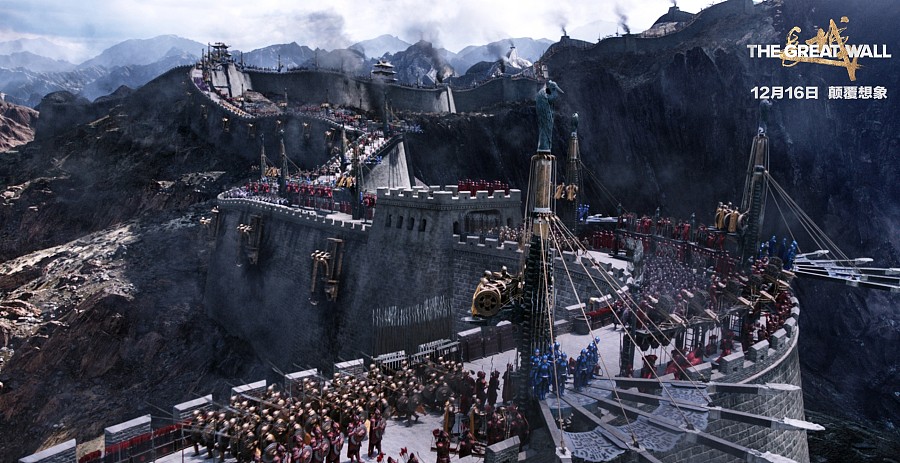Box office a hit in '17, taking in $8.6 billion

With blockbusters assembling for the New Year, China's box office total in 2017 soared to 55.9 billion yuan ($8.59 billion), up 13.45 percent year-on-year, according to data released on Sunday by the country's top movie regulator.

Figures from State Administration of Press, Publication, Radio, Film and Television also show that domestic productions earned 30.1 billion yuan, accounting for 53.84 percent of the total revenue.
With 9,597 new screens installed in 2017, China's giant screens now number a record 50,776. Earlier in 2017, China overtook the United States to become the nation with the most screens.
Urban visits to theaters rose to a total of 1.62 billion patrons, up 18.08 percent from 1.372 billion in 2016, signifying more Chinese flooding to cinemas last year.
Up to 92 movies surpassed the bench mark box office of 100 million yuan, including 51 domestic titles, which accounted for 55.4 percent of the total. The numbers in 2016 were 78 movies overall and 39 domestic titles.
Boosted by Wu Jing's Wolf Warrior 2 and Zhang Yimou's The Great Wall, Chinese movies' overseas sales scored 4.253 billion yuan, an annual rise of 11.19 percent from 3.825 billion yuan in 2016.

For most industry watchers, Wolf Warrior 2, China's highest-grossing film ever, made a great contribution to this year's box office bonanza.
The action-studded movie revolves around a former China Special Force member facing off against western mercenaries. It brought in 5.7 billion yuan, more than double of the No 2 taker, The Fate of the Furious 8, which earned 2.7 billion yuan.
Comedy, a lucrative genre that appeals to Chinese audiences, again proved its charm. Never Say Die, a low-budget comedy drama about gender-exchange, took No 3 in box office sales by grossing 2.2 billion yuan, beating Jackie Chan's Kung Fu Yoga, at fourth with 1.75 billion.
Hark Tsui's fantasy epic Journey to the West: Demon Chapter took the No 5 slot with 1.66 billion yuan, showing that four of the top five box office earners were made by Chinese filmmakers.
Last year also marked a surprise for Hollywood, as seven films from US studios earned more in China than in the United States, according to Motion Picture Association of America.
Rao Shuguang, secretary-general of the China Film Association, said China's movie market has seen a shift in seeking earnings to pursuing quality.
He said movies in the past had been produced to earn quick money, but ended as flops. This led to a shakeout in the business, which has since improved the domestic movie industry and brought it back to sound and stable development.





































